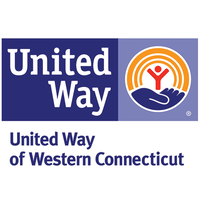
Black and Hispanic Children Suffer Disproportionate Impact According to Data from New ALICE in Focus: Children Report
The majority of Connecticut’s Black and Hispanic children — 72% and 67% respectively — lived in households that couldn’t afford the cost of living, compared to 26% of white children. This data is part of a newly released report, ALICE in Focus: Children, from United Way of Western Connecticut and its research partner, United For ALICE.
ALICE in Focus: Children reveals the disproportionate impact of financial hardship on the state’s Black and Hispanic children, while also challenging the reliance on federal poverty guidelines for eligibility for assistance programs. The report finds traditional measures of poverty have severely undercounted the number of children of all races ages 18 and younger in Connecticut who are growing up in financially insecure households.
While 13% of all children in the state were deemed in poverty in 2019, the report shows that 29% – more than twice as many – lived in families defined as ALICE® (Asset Limited, Income Constrained, Employed). ALICE households earn more than the Federal Poverty Level, but less than what it costs to live and work in the modern economy. Combined, 42% of Connecticut’s children lived in households below the ALICE Threshold, with income that doesn’t meet the basic costs of housing, child care, health care, and transportation.
“No child should grow up without access to the resources and opportunity to meet their potential,” said Isabel Almeida, President of United Way of Western Connecticut. “Too often, we only count children that fall below the Federal Poverty Line, when, in reality, we need to look at the ALICE Threshold to provide a more holistic picture of who in our state lives paycheck to paycheck. Our failure to look more broadly means that children are locked out of receiving critical supports for stable housing, food, and quality education, which can have devastating long-term impacts.”
According to the new research, 41% of Connecticut families below the ALICE Threshold reported in the fall of 2021 that their children “sometimes or often” didn’t have enough to eat, in contrast with 17% of higher income families. Because ALICE households often earn too much to qualify for public assistance, the report finds that 192,000 at-risk children didn’t access the Supplemental Nutrition Assistance Program or SNAP.
Analysis of the U.S. Census Bureau’s Household Pulse Surveys from July - October 2021 reveals that families living below the ALICE Threshold were disproportionately impacted by the pandemic and the economic crisis that emerged as a result. Things like the loss of employment and child care, combined with food insufficiency, and interrupted learning due to technology barriers, ensured that ALICE children had a heavier load to bear both physically and emotionally.
“Having accurate, complete data is the foundation for designing equitable solutions,” said United For ALICE National Director Stephanie Hoopes, Ph.D. “COVID-19 hit ALICE families so much harder than others because they struggle to build savings yet often don’t qualify for financial assistance.”
Data from ALICE in Focus: Children supports the need for real policy change at both the State and Federal level. In Connecticut, there is an opportunity this legislative session to do just that through the passage of Senate Bill 29/House Bill 383 and House Bill 5403, which respectively would maintain the state Earned Income Tax Credit (EITC) at 41.5% of the Federal EITC and create a state Child Tax Credit (CTC) of up to $600 per child. These two pieces of legislation, if passed, will provide ALICE households with an important source of flexible income to meet gaps in basic needs, including things like child care, rent, food, transportation, and medical expenses.
More data is available through the ALICE in Focus: Children interactive data dashboard – which provides filters for regional and local geographies, age, race, disability status, living arrangements and household work status. Visit UnitedForALICE.org/Focus-Children.
S